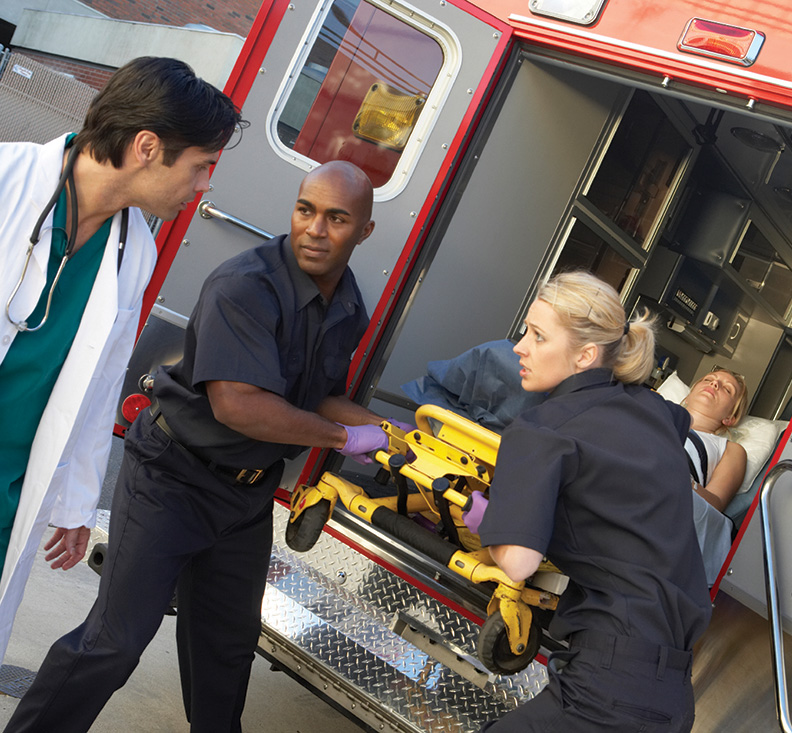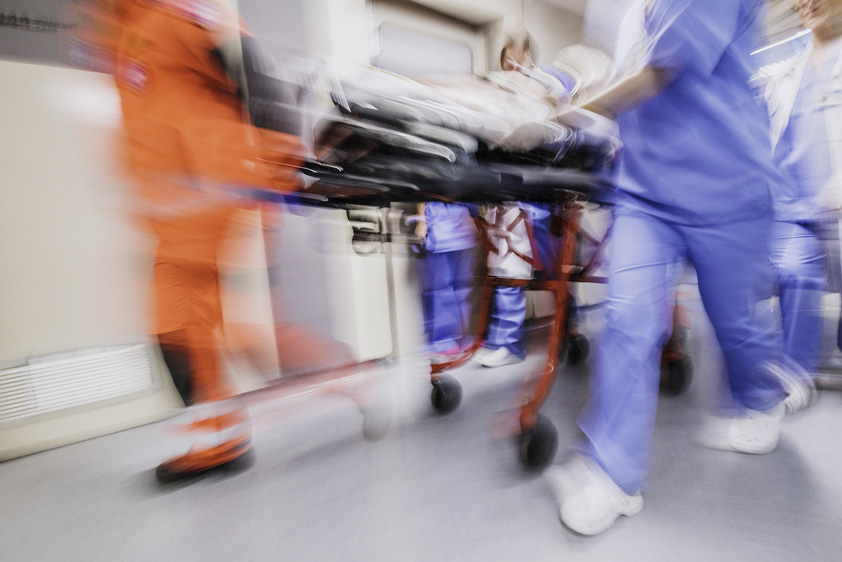
After a mass-scale radiological event, hospitals and clinics will be inundated with patients presenting a spectrum of conditions from anxiety to critical comorbid injuries of acute radiation exposure and trauma. Clinicians will be responsible for providing care and information to both the injured and a large population of the concerned public. Having access to a fast and simple radiation biodosimetry test will help in easing the surge in demand for medical resources by helping to stratify patients quickly. REDI-Dx® is being developed to estimate a patient’s absorbed radiation dose from a blood sample collected 24 hours to 7 days post-exposure, and can provide critical information to assist with the clinical decisions surrounding patient care.

CHALLENGING DIAGNOSIS
Concerned Public
Flu-like Symtoms
Monitoring
Severe Injury
Medical Care Required
GCSF Treatment
Very Severe Injury
Usually Fatal
Figure 1. Health Effects and Treatment Options of Absorbed Radiation. Patients with an absorbed radiation dose of less than 0.5 Gy are unexposed “concerned public” and can be safely evacuated or sent home. Scarce resources are best focused on patients with greater than 2 Gy but less than 6 Gy. These patients are likely to experience symptoms of acute radiation syndrome (ARS), which can be mitigated through treatment with granulocyte colony-stimulating factor (GCSF) and antibiotics. Absorbed doses above 6 Gy are usually fatal, and treatment other than palliative care is recommended only if adequate resources exist. (Coleman, et. al.)
Acute Radiation Syndrome (ARS) is an illness caused by exposure to radiation across most or all of a patient’s body. The dose of radiation must be high (above 0.7 Gy) and occur over a very short period of time (from seconds to several minutes). The hematopoietic system is affected first followed by the gastrointestinal (GI) tract and the neurologic system at higher doses. Diagnosing ARS can be difficult because the initial symptoms are not specific, and they may not occur for hours or days after exposure.
NEXT GENERATION BIODOSIMETRY SOLUTION
The REDI-Dx® Biodosimetry Test system is a high-throughput, molecular assay system being developed to estimate absorbed radiation dose from a blood sample collected and stabilized for ambient transport using DxCollect® Blood Collection Tubes.



